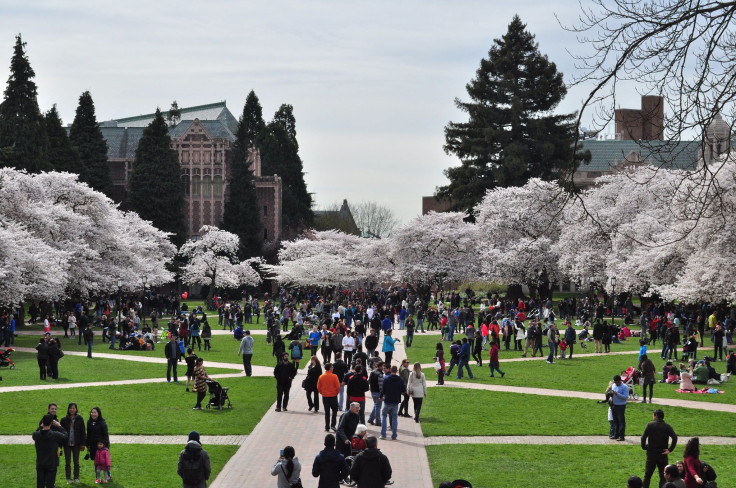US Coronavirus: Over 100 Frat Students Positive For COVID-19 In University Of Washington
KEY POINTS
- Some 15 fraternity houses with 117 students have reported COVID-19 cases in the University of Washington
- The university is conducting further tests and verification, with students told to self-isolate
- King County health officials reiterated the need to follow public health protocols as the school considers face-to-face classes this fall
A coronavirus outbreak has hit the University Of Washington's Greek community as more than 100 fraternity students test positive for COVID-19, days after cases were first announced Tuesday (June 30).
The Interfraternity Council confirmed that 15 fraternity houses with 117 students self-reported the outbreak of cases before the university, per a statement Friday (July 3). School officials are still collecting and verifying the cases while the students have been told to self-isolate. There are 25 Greek houses at the campus with over 1,000 student residents.
The council also asked the fraternities to cancel events after it was revealed that a dozen parties took place in the last month, with students foregoing face masks and social distancing. The students apparently started showing symptoms of COVID-19 on the weekend of June 27, and the school immediately facilitated tests.
"Within 24 hours, we set up a site nearby the Greek houses and apartments for students to come and be tested," Lisa Brandenburg of the UW Medicine Hospitals and Clinics said, per Seattle Patch. "Within the first day, we tested 430 students."

The outbreak is a concern for King County, especially with the reopening of face-to-face classes in the fall.
"When you don't take precautions, you get a lot of COVID in return," Dr. Jeff Duchin, the county's health officer, said. "We need to step up our COVID prevention game big-time, right now, in order to avoid going backward."
Duchin reiterated the need for residents to follow simple measures to stop the virus spread, such as limiting social gatherings, wearing face masks in public, regular hand washing, and physical distancing. Students might have less risk of COVID-19 complications, but they are not immune to the virus or even death from contracting the disease.
Dr. Geoffrey Gottlieb, the chair of the UW Advisory Committee on Communicable Diseases, is also urging the students to follow the health guidelines.
"If we don’t, measures such as what are now required on Greek Row will be inevitable," he said. "My sense is all students want to return to some sense of normalcy."
© Copyright IBTimes 2024. All rights reserved.





















